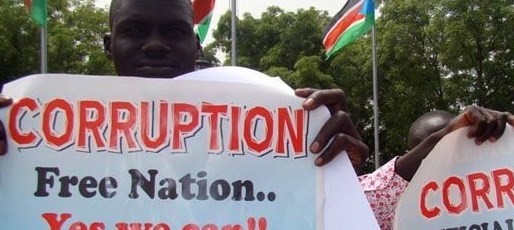A South Sudanese activist has accused the existing anti-corruption commission of failing to combat corruption in the public sector despite its mandate to protect public property.
South Sudan was ranked as the world’s second most corrupt country after Somalia last year in the Transparency International report.
Dara Felix Elisa, a civil society activist in Yei, said the agency tasked with ensuring public funds are used prudently has failed South Sudanese and allowed government officials to squander public funds.
Speaking to Radio Tamazuj on Monday, Felix stressed that a strong anti-corruption watchdog must be established to restore trust among South Sudanese in the country’s leaders.
He accused the current anti-corruption body of laxity in combating corruption. “The current anti-corruption is silent and it has given room for officials to mess up with the country’s resources,” he said.
He also called on the national government to empower anti-corruption agencies at the local level.” They should be empowered to arrest people so that we fight corruption,” he said.
The Anti-Corruption Commission Act of 2009 and the Transitional Constitution of 2011 require that senior public officials including the president make confidential declarations of their income, assets and liabilities including those of their spouses and children annually.
The government officials last declared their assets and income to the Anti-Corruption Commission in 2012. This means that the Commission had failed to ask all government officials to declare their assets and income in the last six years.
The law powers the commission to investigate cases of suspected corruption. However, where its findings warrant prosecution, it must refer them to the Ministry of Justice for action, rather than prosecute them itself.




